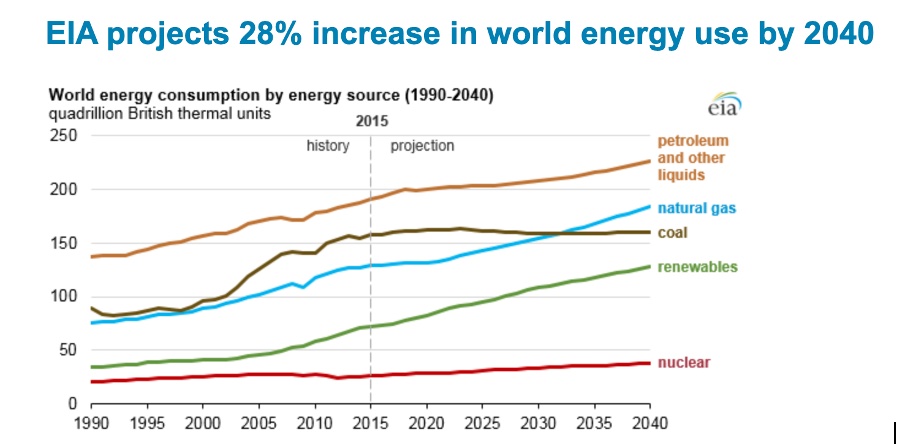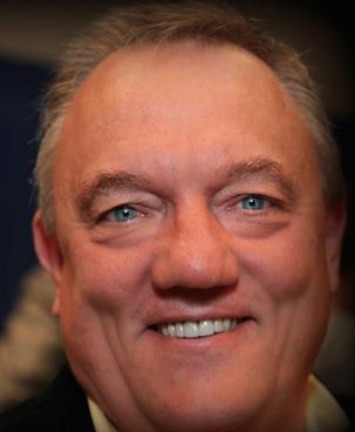By PAUL FUHS
On behalf of the Northern Forum, a trans-Arctic association of Arctic states and regional governments, I attended COP29 (29th Conference of the Parties of the United Nations Framework Convention on Climate Change) in Baku, Azerbaijan this month.
In technical diplomatic terms, the Northern Forum (northernforum.org) is a subnational governmental organization. Our guiding principle is “A Peaceful and Prosperous Arctic.”Gov. Wally Hickel led The Northern Forum’s organizational formation in 1991, and former Lt. Gov. Mead Treadwell and I, as Wally’s Commissioner of Commerce, set up the legal, administrative, and financial structures. I serve as the group’s Arctic Goodwill Ambassador.
We sponsored an Arctic Pavilion during the eight days of the conference where we held many panels and presentations on climate change from an Arctic perspective.
Our main goals at the conference were:
- Defending the Arctic against calls for discriminatory policies to eliminate all Arctic oil and gas production.
- Promoting trans Arctic cooperation and the resumption of the activities of the Arctic Council which have been cancelled due to sanctions of the Ukraine conflict.
- Advocating for safe shipping on the Northern Sea Route.
Let’s break down these three goals:
Discrimination against Arctic oil and gas
The European Union, and many U.S. and international nongovernmental organizations have taken the extreme position that “all Arctic oil and gas must remain in the ground.”
In response, we pointed out that of course we support alternative energy sources when they are practical. In fact, the Arctic is leading the world in renewable energy transition. Norway and Iceland 100%, Denmark 32%, Finland 25%, Sweden 55% and Alaska at 30%.
Shamefully, even after all the mandates and subsidies, the U.S. is only at 9% renewable energy and the European Union stands at 13%. We also pointed out that halting Arctic oil and gas development would not mean even one drop less oil being burned, it would just be produced somewhere else, usually under far less environmentally responsible standards.
The consensus was that this position of “all oil and gas must remain in the ground” was meaningless in reducing fossil fuel consumption and was just something politicians said to make it look like they were doing something, when, on balance, it is actually harmful.
As an example, we pointed out that at 500,000 barrels of oil per day, Alaska represents 2% of U.S. consumption. By comparison, the Alberta tar sands, the dirtiest oil in the world, provides 16% of U.S. consumption and they stand ready to replace Alaskan production. With current reserves, they claim they can produce 4 million barrels per day for the next 149 years. For the U.S., that is the alternative.
As for climate change, it’s not the 4 million people of the Arctic producing fossil fuels; it’s the 8 billion people of the rest of the world who are burning them. It is a consumption issue, not a production issue.
Resumption of Arctic Council Cooperation
Sanctions over the Ukraine conflict have halted the cooperative operations of the Arctic Council, which was established to address non-security issues. As a result, Russia is prohibited from reporting climate data even though Russia constitutes more than 40% of the Arctic. Climate modelers at COP29 openly lamented the loss of this data and say that their climate models do not work without it.
On of the items at stake are the ability to share best practices in renewable energy, engineering best practices for managing melting permafrost, cooperation in fisheries research and management, safe shipping practices and response capabilities on the Northern Sea Route. We advocated for an immediate resumption, or at least a provision in a negotiated settlement of the Ukraine situation, that we could immediately resume our Arctic cooperation. Hope was expressed at the conference that the election of Donald Trump would facilitate an end to the war.
Prevention Measures on the Northern Sea Route
Due to sanctions against Russian oil and gas in Europe, these shipments are being diverted through the Northen Sea Route to China, India and other Asian nations. The shipments of crude oil through ice covered waters presents a substantial risk. The panel discussing this issue focused on the extensive Russian monitoring of environmental conditions on the route. I promoted enhanced prevention measures and presented the offer from Alaska to jointly cooperate with Russia in the vessel tracking, monitoring and emergency response system of the Marine Exchange of Alaska Arctic Watch system. (mxak.org)
Other Conference issues
Negotiations at the conference revolved around transtitions to renewable energy and paying the developing nations of the world for climate change impacts and financing for alternative energy.
The subject of reparations to less developed nations was the real heart of the conference by the voting national delegates. A popular banner worn by activists at the conference was “Pay us $5 trillion dollars”. In the meantime, the European Union had put out an initial offer of $200 billion. Amidst protest by less developed nations, they settled upon $300 billion, although payment enforcement measures were considered weak.
The rest of the conference focused on energy efficiency and technical improvements in the production of alternative energy. One breakthrough of recycling was presented by a Singapore company that was offering a beer thay had made from processed sewage water although I must confess that I did not try it.
Our Arctic Pavilion was one of the few that presented an overall assessment of the history, current use and future projections of human energy consumption as represented in the graph below.

The clear conclusion is that rising energy demand is outpacing renewable energy capacities, requiring similar increases in fossil fuel production. And this increase is even before considering feeding the 730 people of the world who are starving and before the expected growth in human popluation from 8 billion today to a projected 11 billion by 2050. Food production, processing and distribution consumes 30% of overall energy use and people at least must be able to eat. It is estimated that by 2050 the world will need 70% more food production.
Artificial Intelligence is expected to provide another 160% increase in energy consumption in server farms. About 2 billion people of the world don’t have any modern energy and many are doing their cooking with dried cow dung. Their desire for a better standard of living is sure to create additional demands on energy production. The only time there was an actual reduction in world energy use was during covid and frankly, no one at the conference said they wanted to go back to that situation.
As human beings, we are also a major source of CO2 ourselves, emitting 2.3 pounds or 1 kilogram of CO2 per person per day. At 8 billion people, that is a lot of CO2, but we do have to breathe.
It is also projected that by 2050, production of plastics, synthetic fabrics and other materials will consume 50% of oil production, so it will be needed for quite some time. Although plastics have their own issues since they do not break down, they are probably the most effective carbon capture process to date.
Another point of reality we presented was that if the most ambitious of green transitions to electrification are realized, we are going to have to strip mine the planet for all the metals that will be needed. An electric vehicle takes 6 times as much metal as an internal combustion engine. Despite the obvious need for these metals in a non carbon transition, several of the organizations attending the conference have been involved in efforts to shut down Arctic and Alaskan mining projects.
The issue of sea level rise was also a large issue, since over the past couple of hundred years we have built up this massive infrastructure of housing, buildings, factories and ports at sea level and 95% of world trade is carried on the ocean. A rapid rise would have a substantial economic impact.
While we are entering the end of a period of glaciation, and temperatures and water levels would be expected to rise naturally, regardless of human impact, it is clear we are accelerating the rate of increase. I was able to provide some historical reference which was once given to me by an Inupiat elder from the North Slope, who told me “Yes, we have been here for at least 10,000 years at a time when the ocean levels were 300 feet below what they are today, so yes the oceans are rising and you people are just starting to figure that out?” He said with a wry smile… that was not mean spirited in any way. 300 feet of ocean level rise in the short period of 10,000 years….quite a sobering figure.
In the meantime, given the world’s trajectory of increased energy use and the practical limits of renewable energy, it seems that climate geoengineering in one form of another is going to have to be considered. There are several options, and we should at least be working with them now to test their effectiveness. However, most of the people at the conference were more interested in blaming the oil companies rather than considering this but it is probably where we are headed.
The country of Azerbaijan, which I must say did a wonderful job of managing a conference with 50,000 attendees, came under criticism for being a producer of oil and gas, just like the Arctic.
President Ilham Aliyev defended Azerbaijan’s progress in renewable energy and stated that “the fake news media, NGO’s and politicians” were “slandering and blackmailing them” when their CO2 emissions only represented 0.1%. He defended their right to produce, stating that “oil and gas are a gift of God” and that “oil, gas, wind, sun, gold, silver, copper, all… are natural resources and countries should not be blamed for having them and should not be blamed for bringing them to the market because the market needs them. People need them.”
Of course, a prevailing sense of uncertainty pervaded the conference, due to the election of Donald Trump as president. For better or worse, the rest of the world expects the U.S. to lead and foot the bill for whatever conclusions are reached. I think it’s at least safe to say that that a fresh set of eyes will be looking at this.
I was proud to represent our interests at the conference and we were well received, even though some may not have agreed with our approach. Nevertheless, we have to keep telling our story and defend our interests as Arctic people.
Paul Fuhs grew up in Anchorage, attending Denali Elementary, Central Junior High and graduated from West High in 1967. He was enlisted in US Army Military Intelligence, MOS 97 Delta, and a North Vietnamese linguist during the Vietnam War era, 1969-1971. He served as the commissioner of the Department of Commerce during the Hickel Administration and is one of the founders of Marine Exchange of Alaska, which was established to share information that aids safe, secure, efficient, and environmentally sound maritime operations in Alaska.
